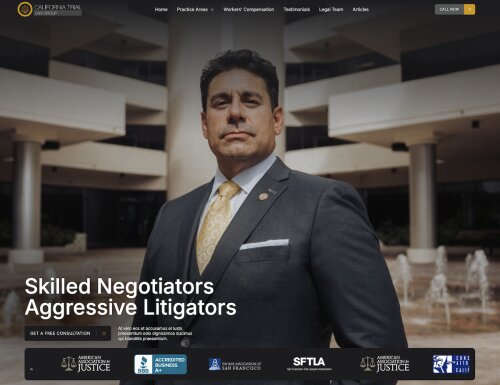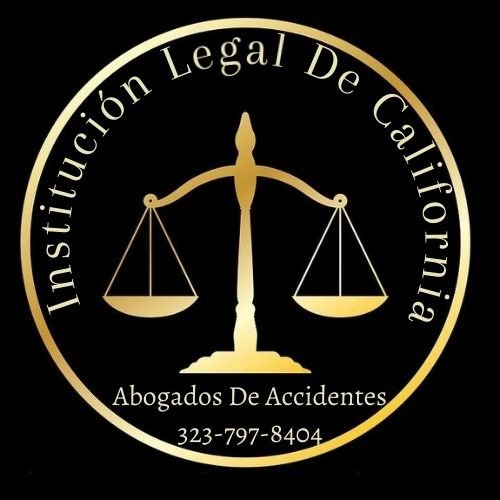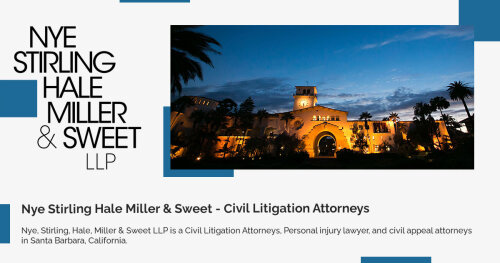Best Wrongful Termination Lawyers in United States
Share your needs with us, get contacted by law firms.
Free. Takes 2 min.
Or refine your search by selecting a city:
List of the best lawyers in United States
United States Wrongful Termination Legal Questions answered by Lawyers
Browse our 1 legal question about Wrongful Termination in United States and read the lawyer answers, or ask your own questions for free.
- Wrongfully suspended from work
- My job has me on suspension right now. And it's going on for a week. Since. I haven't heard from anyone. I work for a union company and. I'm disappointed with how they're handling my case. What advice can you give me? At this point, I'm under emotional stress and... Read more →
-
Lawyer answer by Nomos Legal Practice
Thank you and best regards, Kingsley Izimah, Esq. SK Solicitors
Read full answer
About Wrongful Termination Law in United States
Wrongful termination law in the United States refers to the legal rights and protections available to employees who believe they have been unjustly dismissed from their employment. Employment in the United States is generally considered "at-will," meaning that an employer can terminate an employee for any reason or no reason at all, as long as it is not illegal. However, wrongful termination occurs when an employee is fired in violation of federal or state laws, employment contracts, or company policies. Common causes for wrongful termination claims include discrimination, retaliation, violation of public policy, and breach of contract.
Why You May Need a Lawyer
Engaging a lawyer can be crucial in cases of wrongful termination due to the complex nature of employment laws and the potential for significant financial and emotional impact on the affected individual. Here are some common situations where legal help may be necessary:
- Discrimination: If you believe your termination was due to race, gender, age, disability, or any other protected class, you may need legal assistance to pursue a discrimination claim.
- Retaliation: If you were fired after reporting illegal activities or participating in whistleblower activities, a lawyer can help you navigate your rights and possible legal actions.
- Contractual Violations: If your employment was protected under a specific contract and those terms were breached, a lawyer can assist in claiming damages.
- Constructive Discharge: If your working conditions were so intolerable that you were forced to resign, it may be considered a wrongful termination, and legal advice could be beneficial.
Local Laws Overview
The legal landscape for wrongful termination varies by state, but there are federal protections that apply nationwide. Key aspects to consider include:
- Federal Laws: The Civil Rights Act, the Americans with Disabilities Act, and the Age Discrimination in Employment Act provide protections against discriminatory firings.
- State Laws: Many states have additional laws that provide further protections or expand on federal laws. Employees should research specific state employment laws pertinent to their case.
- Public Policy Exceptions: In situations where an employee is terminated for reasons that violate public policy (e.g., refusing to commit an illegal act), this might give rise to a wrongful termination claim.
Frequently Asked Questions
What is wrongful termination?
Wrongful termination occurs when an employer illegally fires an employee in violation of federal or state laws, employment agreements, or company policies.
Can I be fired for complaining about workplace safety issues?
No, federal and state laws protect employees from termination for reporting unsafe working conditions, as it may be considered retaliation.
How much time do I have to file a wrongful termination lawsuit?
The time limit to file can vary significantly based on the claim type and state, so it’s important to check local regulations or consult with an attorney quickly after the termination.
If I am an at-will employee, do I still have protections against wrongful termination?
Yes, even at-will employees can seek protection from termination if it stems from unlawful discrimination, retaliation, or other illegal grounds.
What evidence is needed to prove wrongful termination?
Evidence may include employment records, emails, texts, witness testimonies, and performance reviews, which support claims of discrimination or policy violation.
Can I sue my former employer for pain and suffering?
Yes, if the wrongful termination impacted your emotional well-being, it’s possible to seek damages for pain and suffering in addition to lost wages.
Is there any financial assistance available for legal costs related to wrongful termination cases?
Some states offer legal aid services, and some lawyers may work on a contingency fee basis, meaning they only get paid if you win the case.
What is considered retaliatory termination?
Retaliatory termination occurs when an employer fires an employee as a reaction to the employee exercising a legal right or participating in a legally protected activity.
What role does the Equal Employment Opportunity Commission (EEOC) play in wrongful termination cases?
The EEOC enforces federal civil rights laws and investigates discrimination complaints, which can be pivotal in wrongful termination cases based on discrimination.
Can I resolve a wrongful termination claim without going to court?
Yes, many wrongful termination disputes are settled through mediation or negotiation, thus avoiding the need for a lengthy court process.
Additional Resources
Here are several resources that can prove beneficial for someone dealing with wrongful termination:
- Equal Employment Opportunity Commission (EEOC): Provides guidance and support for cases involving discrimination.
- National Employment Lawyers Association (NELA): Offers support for workers in employment law cases.
- Department of Labor (DOL): Provides information on employment laws and worker rights.
- State labor departments: Each state has its labor department for more localized assistance.
Next Steps
If you believe you have been wrongfully terminated, consider taking the following steps:
- Document Everything: Gather all relevant information and documentation related to your employment and termination.
- Contact a Lawyer: Seek advice from a lawyer specializing in employment law to evaluate your case.
- Research Your Rights: Understand the laws applicable to your case and the protections available to you.
- File a Complaint: If necessary, file a complaint with the EEOC or your state’s labor department.
- Consider Alternate Dispute Resolution: Explore mediation or negotiation as alternatives to litigation.
Taking timely action can significantly impact the outcome of your situation. Legal professionals can guide you through the process and improve your chances of a favorable resolution.
Lawzana helps you find the best lawyers and law firms in United States through a curated and pre-screened list of qualified legal professionals. Our platform offers rankings and detailed profiles of attorneys and law firms, allowing you to compare based on practice areas, including Wrongful Termination, experience, and client feedback.
Each profile includes a description of the firm's areas of practice, client reviews, team members and partners, year of establishment, spoken languages, office locations, contact information, social media presence, and any published articles or resources. Most firms on our platform speak English and are experienced in both local and international legal matters.
Get a quote from top-rated law firms in United States — quickly, securely, and without unnecessary hassle.
Disclaimer:
The information provided on this page is for general informational purposes only and does not constitute legal advice. While we strive to ensure the accuracy and relevance of the content, legal information may change over time, and interpretations of the law can vary. You should always consult with a qualified legal professional for advice specific to your situation.
We disclaim all liability for actions taken or not taken based on the content of this page. If you believe any information is incorrect or outdated, please contact us, and we will review and update it where appropriate.
Browse wrongful termination law firms by state in United States
Refine your search by selecting a state.

















